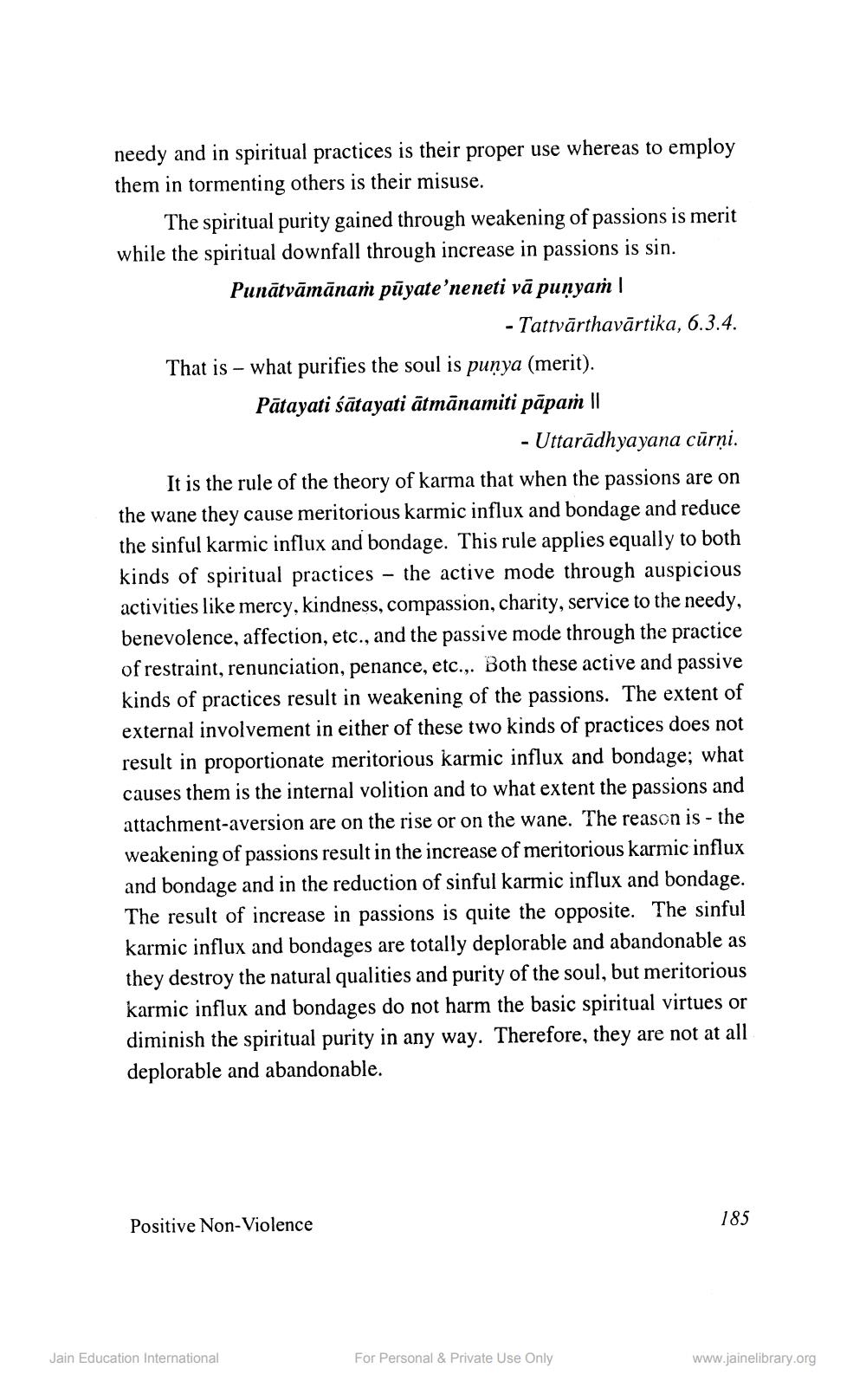________________
needy and in spiritual practices is their proper use whereas to employ them in tormenting others is their misuse.
The spiritual purity gained through weakening of passions is merit while the spiritual downfall through increase in passions is sin.
Punātvāmānam pūyate'neneti vā punyam |
- Tattvārthavārtika, 6.3.4.
That is - what purifies the soul is punya (merit). Pātayati śātayati ātmānamiti pāpam ||
- Uttarādhyayana cūrņi. It is the rule of the theory of karma that when the passions are on the wane they cause meritorious karmic influx and bondage and reduce the sinful karmic influx and bondage. This rule applies equally to both kinds of spiritual practices – the active mode through auspicious activities like mercy, kindness, compassion, charity, service to the needy, benevolence, affection, etc., and the passive mode through the practice of restraint, renunciation, penance, etc.,. Both these active and passive kinds of practices result in weakening of the passions. The extent of external involvement in either of these two kinds of practices does not result in proportionate meritorious karmic influx and bondage; what causes them is the internal volition and to what extent the passions and attachment-aversion are on the rise or on the wane. The reason is - the weakening of passions result in the increase of meritorious karmic influx and bondage and in the reduction of sinful karmic influx and bondage. The result of increase in passions is quite the opposite. The sinful karmic influx and bondages are totally deplorable and abandonable as they destroy the natural qualities and purity of the soul, but meritorious karmic influx and bondages do not harm the basic spiritual virtues or diminish the spiritual purity in any way. Therefore, they are not at all deplorable and abandonable.
Positive Non-Violence
185
Jain Education International
For Personal & Private Use Only
www.jainelibrary.org




